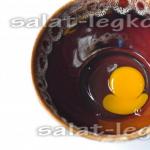Get a beer license. Legal advice. Timing of the inspection
Manufacturers and sellers of beer, as well as other malt drinks, will have to obtain licenses. On behalf of Deputy Prime Minister Alexander Khloponin, the Ministry of Finance will record these measures in the “road map” for the development of the industry, according to the protocol of the government commission (available to Izvestia). The state is strengthening control over the beer market, which will lead to the departure of “gray” companies from it.
To produce and sell beer and beer drinks, you will need a license - Deputy Prime Minister Alexander Khloponin ordered the development of this norm to be included in the new “road map” for the development of the industry. This was stated in the protocol following the meeting of the government commission at the end of 2017. A draft of a new “road map” for 2018–2019 has already been prepared by the Ministry of Finance (Izvestia also has it). It follows from the document that a report to the government on strengthening control over beer products will be ready in the second quarter of 2018.
Facts of illegal production and trafficking of beer and beer drinks are systematically revealed. Less than a quarter of beer producers are members of the EGAIS (330 out of 1.4 thousand manufacturers). An analysis of the reporting of benefit brewers shows discrepancies between the declared shipment volumes and the products purchased and sold at retail, Natalya Platonova, press secretary of Alexander Khloponin, told Izvestia.
Currently, the production and retail sales of beer and its derivatives do not need to be licensed. The industry is monitored by Rosalkogolregulirovanie (RAR) using the state accounting system EGAIS in production. Retail chains declare retail sales volumes.
Natalya Platonova recalled that all retail sales of beer are exempt from the Unified State Automated Information System, control over sales is carried out only within the framework of declarations. At the same time, the reporting discipline of brewers remains extremely low. Manufacturers often do not provide information about the sale of beer and beer drinks. This is especially true for 112 thousand individual entrepreneurs - up to 30% of them do not submit declarations on product sales. According to the Administrative Code, the punishment for legal entities for such a violation is up to 100 thousand rubles, and for individual entrepreneurs - up to 10 thousand rubles.
Retail sales of beer, according to RAP, increased in 2017 by 12.1%, beer drinks - by 9.8% (in total, their sales amounted to 742 million deciliters). The excise tax rate on these products increased by 5% over the past year. Taking into account the increase in sales volume and excise tax rate, revenues to the treasury from the tax should have increased by a proportional amount. But this did not happen. According to the Federal Tax Service, 150.2 billion rubles were transferred to the budget from excise taxes on beer and its derivatives, which is only 1.3% higher than the 2016 figure. From this we can conclude that there are a number of producers on the market who do not pay taxes on alcohol. In 2016, in a similar situation, the RAR concluded that there was a shadow sector, which officials estimated at a third of the total volume of the beer market. The service has not yet provided similar estimates for 2017.
Director for Legal Affairs and Corporate Relations at SUN InBev Oraz Durdyev does not consider licensing to be an effective and necessary tool for regulating the industry.
Baltika noted that the innovation will create new administrative barriers and lead to additional costs for business and, as a result, an increase in product costs.
This will lead to an even greater shift in demand towards strong drinks, a company representative warned.
The Ministry of Finance, the Ministry of Industry and Trade, the Ministry of Economic Development and the RAR did not answer Izvestia’s questions about how the implementation of the proposal to introduce licensing could affect the market and how it would affect product prices in stores. The Association of Retail Trade Companies (which unites the largest federal retailers) declined to comment on this matter.
Licensing always results in additional costs for the manufacturer, which leads to higher prices for products, since manufacturers pass on part of the costs to buyers. The price will also be affected by a reduction in supply from brewers. Small factories are unlikely to operate under the new rules, which will result in significant costs for them both for the license itself and for paying excise duty.
To treat their visitors to fresh beer, many owners of restaurants and cafes with full kitchens set up mini-breweries. In this regard, many nuances arise related to the organization, permits and sale of beer in such establishments. We will talk about how to resolve these issues in our article.
From a legal point of view, beer is a paradoxical drink. Despite the fact that beer is an excisable product, the income from the sale of which is subject to a fee for the development of viticulture and hop growing, a single entrepreneur can sell beer at retail without strict control of sales volumes. In addition, this is the only drink that is not formally classified as alcoholic, but may contain a significant proportion of alcohol. And finally, beer production is regulated by standards and rules, compliance with which is not always mandatory.
The key question that needs to be answered when building a scheme for the operation of a brewery in a restaurant establishment is whether the legislative framework makes it possible to combine these two types of activities under one owner. The legislation does not contain a clear permission, but does not prohibit it either. This contradiction can be resolved based on the principle of free choice of types of entrepreneurial activity by a business entity. Such entities have the right, without restrictions, to independently carry out any business activity not prohibited by law. Since beer is a drink, and the legislation provides for the possibility of the existence of own-produced drinks in restaurant establishments, the preparation of beer in such an establishment is considered absolutely legal.
So, you can brew beer in a restaurant, but the next question that arises is whether you need a license to make your own beer. To do this, you need to decide whether beer belongs to alcoholic beverages. According to the current legislation, an alcoholic drink is a product obtained by alcoholic fermentation of sugar-containing materials or made on the basis of food alcohols with an ethyl alcohol content of more than 1.2% by volume, which are indicated in the headings.
The main difference between beer and alcoholic beverages is the method of fermentation and the type of starting material. Beer is made not by alcoholic fermentation of sugar-containing material, but by fermenting wort with brewer's yeast. Brewer's yeast and alcohol yeast are different strains of yeast. Due to the discrepancy between beer and the concept of an alcoholic drink, it follows that you do not need to obtain a license to produce it. Likewise, a retail license for this drink is not required.
In addition, the production of beer is not subject to the requirement of mandatory product certification. Since beer does not belong to the list of products subject to mandatory certification, approved by the executive authority for technical regulation.
However, the beer manufacturing process must meet the mandatory requirements of state standards:
Occupational safety and health requirements;
Requirements ensuring the safety of products for the life, health and property of citizens, protection of the natural environment;
Metrological standards and regulations ensuring the reliability and uniformity of measurements;
Provisions ensuring technical unity during the development, manufacture, and use of products;
Concepts and terms used in the field of waste management, requirements for waste classification and certification.
Therefore, beer production equipment must be checked for compliance with environmental standards and a hygienic certificate must be obtained for the drink produced. The document is issued after verification and examination of the documentation. Hygiene assessment is important because it allows us to evaluate the impact of a product on the human body, as well as its safety.
Beer production also requires compliance with sanitary standards and regulations. And, therefore, to begin the beer production process, you need to obtain from the sanitary service an operational permit for facilities for the production, processing or sale of food products and a conclusion from the state sanitary and epidemiological examination with an agreed upon range of beer planned for production.
These are, in principle, all the legal aspects that should be taken into account if you want to organize a mini-brewery at a restaurant or cafe. We wish you success in this interesting, but not always easy work, which, despite all its difficulties, brings in a fairly high income.
In this article:
Beer is a barley-malt drink with a hop aroma, pleasant bitterness, and the ability to foam when poured. Thanks to its unique taste and thirst-quenching effect, the intoxicating drink is in high demand among the population. And therefore, very tough competition has formed in the beer production market. But, despite this, an enterprising businessman who decides to open a brewery will always be able to organize a profitable and promising business.
Starting your own business does not necessarily require large investments. However, to carry out this activity it is necessary to obtain a range of permits and certificates. Administrative barriers are quite difficult to overcome, especially for a beginning entrepreneur. Therefore, further we will consider the features of registration of permits.
How to put a microbrewery into operation
In order to put a mini-brewery into operation, you must obtain the following documents for beer production:
- Permits from the SEZ and fire inspection, State Energy Supervision;
- Licensing beer production and visiting the State Tax Inspectorate department. A business involving the production and sale of beer is not subject to licensing. However, the government has issued a new decree, which implies that beer production at the federal level is subject to licensing. To obtain a license, you must write a request to the tax office. A beer production license is issued within three months.
- Hygienic certificate in sanitary and epidemiological supervision. The document is issued only after a hygienic assessment of the product. The procedure can last for 2 months.
Beginning entrepreneurs should know that beer is an excisable product, which is subject to an additional tax of 15%.
However, the administrations of some regions have created a law on beer production “On state regulation of the production of ethyl alcohol and alcoholic products,” which assumes that each liter of intoxicating drink is subject to a fee of 300-400 rubles.
Technological process for the production of intoxicating drink
The hardware flow chart for beer production is shown in the photo below.

The technological process includes the following main stages of beer production:
1. Preparation of beer wort - preparing malt for beer production, that is, weighing the required amount of product and grinding it. Next, pour water into the mash-wort brewer and add crushed malt.

Then the malt is mashed, which can be done in two ways:
- infusion method;
- by decoction method.

The sugared mash is moved to filtration apparatus, in which its division is carried out. After filtering the first wort, the grain is washed with water.
Traditional technology involves boiling beer wort with hops for 1.5-2 hours and cooling it to a temperature of 6-70 °C. 2.

2. Fermentation of beer wort - carried out in a fermentation apparatus with the addition of brewer's yeast.

3. Beer aging – occurs in hermetically sealed metal tanks for 11-100 days. The fermentation temperature and duration of the process depend on the type of beer. As a result of aging, beer becomes stronger, lighter and saturated with carbon dioxide.

4. After organoleptic, laboratory and technochemical control is completed, beer is bottled. Automation of beer production allows bottling of the intoxicating drink on special lines.
Beer production equipment
Before you start purchasing equipment, you need to determine the capacity of the future enterprise:
- Beer production plant, with a capacity of 50-500 liters - a mini beer production plant;
- A plant producing 500-15,000 liters of beer is a mini-brewery;
- The plant, with a capacity of over 15 thousand liters, is an industrial giant. Mini-breweries use the top fermentation method. As a result of this method, the intoxicating drink is infused in a container, and the duration of the production process is reduced.
Minibreweries adhere to a technological process based on bottom fermentation method. As a result of this technology, a higher quality intoxicated drink is obtained. There is also a technological instruction developed by the research and production association, which considers the features of each production process.
In order to organize the production of draft beer, the following list of equipment is required:
- malt crusher;
- filtration apparatus;
- pump for mash, wort and hot water;
- mash and wort brewer;
- heat exchanger;
- water heating apparatus;
- pumps for young and finished beer;
- electric steam generator;
- fermentation tanks;
- hydrocyclone apparatus;
- refrigeration unit equipped with an ice maker;
- dispensing containers;
- yeast vats;
- control panel.
The beer production line may include another set of equipment. The list of equipment depends on the type of beer being produced, the name of the manufacturer, the type of malt and the features of the technology.
Business plan for a microbrewery
1. Purchase of raw materials and materials
In order to purchase raw materials for beer production, you can consider the following purchase options::
- Buy malt from abroad. This type of acquisition of raw materials is beneficial when large volumes are purchased.
- Buy malt from leading equipment suppliers or on the domestic market of the country.
The beer recipe determines the choice of raw materials for the production of the intoxicating drink. Any type of drink is brewed from yeast, malt, hops, and water. However, there are various methods for producing special types of beer, in which the composition of the intoxicating drink can be modified.
The beer production process involves making malt. Malt production– a profitable type of business that accompanies brewing. If a novice entrepreneur wants to buy malt, then he needs to know that 50 tons of German malt are sold at a price of 0.55 USD. per kilogram. This raw material can only be purchased in large quantities, over 50 tons.
Yeast for beer production can be purchased at a brewery or from a private brewer. It is more rational to buy yeast from a large enterprise; as a rule, it is of higher quality.
To date, the following prices have been established for raw materials:
- Water – 1 cu. m. - about 11 rubles;
- Sewerage – 1 cubic. m – 9 rubles;
- Malt – 1 kg – 8-9 rubles;
- Hops – 1 kg – 86 rubles;
- Yeast – 1 kg – 200 rubles;
- Electricity - kW/h - 0,500 rubles.
By drawing up a material balance for beer production and carrying out product calculations, you can determine the consumption of raw materials.
2. Purchase of equipment
To organize a mini-brewery with a capacity of 1000 liters of beer per day, you can purchase a set of equipment supplied by the Miass Machine-Building Plant, the cost of which is about 54 thousand US dollars. To purchase auxiliary equipment, 200 thousand rubles are needed.
Imported equipment for beer production, the price of which can fluctuate in the price range of 300-700 thousand USD, is not advisable and economically ineffective to buy at the initial stages of production. However, an imported beer production line can increase the productivity of a mini-brewery and improve the properties of the intoxicating drink. Therefore, it is cost-effective to buy such equipment when the enterprise’s activities generate regular income and to gain competitive advantages.
3. Preparing the premises for a brewery
Preparing the premises– one of the main problems for private business leaders. In order to organize beer production and a business based on the commissioning of a mini-brewery, you can rent or buy premises. To accommodate a set of equipment, you need a room with a total area of more than 150 square meters. m. Due to the dimensions of the equipment, it can be assumed that the beer production workshop will occupy about 100 sq. m. m, for a warehouse you need 35 sq. m, for office – 15 sq. m. Monthly costs for renting the premises will be about 25 thousand rubles.
4. Staff
To organize a mini-brewery you need about 10 specialists, among whom will be a director, a cleaner, 4 specialists engaged in primary and auxiliary production, an accountant-cashier, 2 brewers, and a forwarding driver. The monthly wage fund will be 250 thousand rubles.
5. Total costs of beer production
The total cost of organizing a brewery will be 3 million rubles.
6. Income from activities and calculation of economic indicators
In order to calculate the income from the commissioning of a mini-brewery, it is necessary to record beer production on a daily basis. If beer is bottled at an enterprise, then their number and capacity are taken into account; if in kegs, the capacity and number of kegs are taken into account.
The monthly income of the mini-brewery will be 200 thousand rubles, and the income for the year after tax will be 2 million rubles. The payback period for a mini-brewery is 1.5 years. A short payback period and high income indicate that brewing is a profitable type of business.

Currently, beer, as well as beer drinks, are equated to alcoholic products. This state of affairs imposes a number of prohibitions on beer stores. Yes, or in . At the same time, beer industry organizations are obliged to determine the scope of their work. However, many entrepreneurs are still scratching their heads - if beer is alcohol, then is it necessary to obtain a beer license?
Why are there rumors about the need for a beer license...
The list of licensed activities is established by Article 18 of Federal Law No. 171-FZ “On State Regulation of the Alcohol Market”. According to this norm, an alcohol license is required for industrial production and wholesale distribution of alcoholic products. In addition, it is necessary for organizations wishing to carry out retail sales of alcohol. Guided by Article 18 of Federal Law No. 171-FZ, an entrepreneur who wants to start selling beer needs a license.
Another argument in the misconception that a beer license is needed is the provision of paragraph 7 of Article 2 of Federal Law No. 171-FZ. According to this standard, food products with an ethyl alcohol content of more than 0.5% by volume are recognized as alcohol. However, alcoholic products are divided into several types:
- alcoholic drinks, including vodka;
- wine – fruit, liqueur, sparkling, etc.;
- Attention (!!!) beer and beer-based drinks, as well as cider, poire and mead.
Considering that, in accordance with Article 18 of Federal Law No. 171-FZ, an alcohol license is required for the sale of alcoholic products, which is beer, the misconception about the need to obtain a beer license takes on real shape. Additionally, reports in leading media about a new bill by State Duma deputies, which will introduce a beer license, add fuel to the fire.
Against the backdrop of mass confusion among aspiring entrepreneurs and numerous rumors, many companies have appeared offering to obtain a beer license. Don't fall for scammers!
You don't need a license to sell beer yet
In principle, the subtitle answers the question posed by the entire article. However, professional market participants need to get confirmation of their words.
In accordance with the previously mentioned Article 18 of Federal Law No. 171-FZ, the production and circulation of beer and beer drinks, cider, poire, and mead are not subject to licensing.
Skeptics will say that the production and wholesale distribution of beer without a license is possible, but what about the retail sale of the foamy drink? Again, the emergence of this issue is based on an incorrect interpretation of the norms of Federal Law No. 171-FZ.
According to paragraph 16 of Article 2 of the main “alcohol” law, turnover should be understood as purchasing, supply, storage, transportation and attention (!!!) retail sales.
Thus, as a counterbalance to the norms that give rise to rumors about the need to obtain a beer license, we have paragraph 1 of Article 18 and paragraph 16 of Article 2 of Federal Law No. 171-FZ “On State Regulation of the Alcohol Market”, which indicate in black and white that for now
Prospects for the law on the sale of beer
The attentive reader will pay attention to the key word “yet.” Today, the issue of licensing the brewing industry is one of the most pressing in the alcohol market. Over the past few years, numerous obligations have been imposed on representatives of the beer market - from a ban on beer advertising to the introduction of the Unified State Automated Information System. Despite this, State Duma deputies still maintain certain preferences for brewers. The most predictable scenario is the gradual introduction of licenses, first for the production and wholesale sale of beer, and then for the retail sale of beer. However, today all this is only the forecasts of the deputies themselves and professional participants in the brewing industry.






